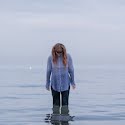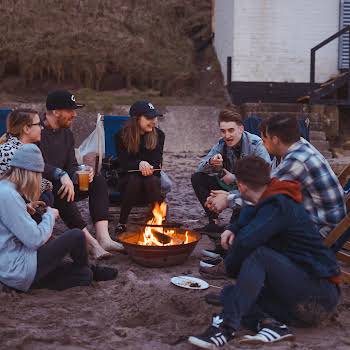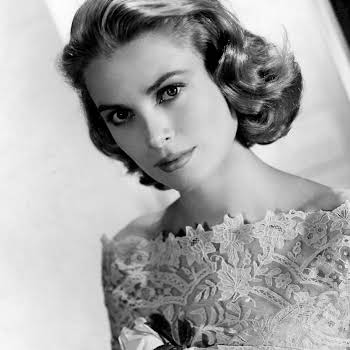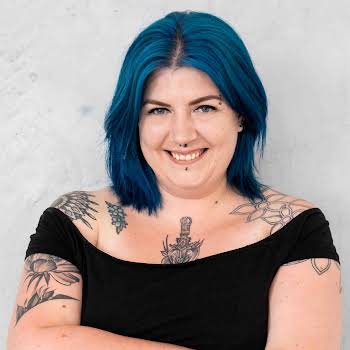
By IMAGE
30th Sep 2013
30th Sep 2013
I’m the kind of person who likes charity best when you get something back. Like at school fetes, when you gave to charity by paying to throw a wet sponge at a teacher’s face, and won a goldfish for having the pleasure. Therefore, ethical fashion suits me down to the ground. I can drop obscene amounts of cash and feel sanctimonious about it, if the cause is worthy enough. Increasingly though, you don’t even have to drop eye-watering amounts, as ethical fashion is turned into a cause du jour by ambassadors such as Livia Firth.
Like when Penney’s briefly made organic cottons t-shirts, circa. 2005. Instead of buying four pairs of dolly shoes, I splurged (read: spent €10) on one waffley t-shirt. It felt kinda luxurious, even if it was still most likely made in a sweatshop. Most recently, this method of purchase justification has been used on my new African Shirt Company shirts. These scratchy-in-a-starchy-way kanga shirts are made in Kenya by the locals of Kiteghe, a community that suffers from deforestation and drought. The company, founded by Joan Hughes (Irish, yeaaah!) and Lindi Campbell-Cause, a third generation Kenyan who completed her second- and third-level education in Dublin, has employed four local mothers, and as the company grows, they’ll continue to train, upskill and employ more people. If that wasn’t enough, each shirt sold is also a donation towards the reforestation around Kiteghe. These shirts, colourful, Solange-endorsed pieces of art, are made from limited cuts of kanga fabric, so your shirt will be the ultimate limited edition. They are also made without the use of electricity or running water, so they are made on foot-pedalled machines, and pressed with charcoal irons.
Like when Penney’s briefly made organic cottons t-shirts, circa. 2005. Instead of buying four pairs of dolly shoes, I splurged (read: spent €10) on one waffley t-shirt. It felt kinda luxurious, even if it was still most likely made in a sweatshop. Most recently, this method of purchase justification has been used on my new African Shirt Company shirts. These scratchy-in-a-starchy-way kanga shirts are made in Kenya by the locals of Kiteghe, a community that suffers from deforestation and drought. The company, founded by Joan Hughes (Irish, yeaaah!) and Lindi Campbell-Cause, a third generation Kenyan who completed her second- and third-level education in Dublin, has employed four local mothers, and as the company grows, they’ll continue to train, upskill and employ more people. If that wasn’t enough, each shirt sold is also a donation towards the reforestation around Kiteghe. These shirts, colourful, Solange-endorsed pieces of art, are made from limited cuts of kanga fabric, so your shirt will be the ultimate limited edition. They are also made without the use of electricity or running water, so they are made on foot-pedalled machines, and pressed with charcoal irons.
There’s an incredible thrill you get from wearing a piece of clothing with a story like that behind it. The idea of a story behind a piece of ethical clothing really adds to the provenance we search for in non-high street goods. For instance, We Are Islanders (the beautiful trio of designers Rosie O’Reilly, Kate Nolan, and glamour puss Dee Hynes) have brought an interactive element to their fabrics. With their fringe installation piece, 4/704, they dyed lengths of fabric in 4 of the annual tides, and this fabric will be used in a limited range of tie-dyed garments next season. If you can’t wait for that, they’re launching officially at the RHA in early October, and if their SS13 collection was anything to go by, dancing on the borders of sportswear-luxe – earthy textures and light, shimmering metallics, we should be waiting with bated breath to see what these ladies produce next…
The realisation that you don’t have to sacrifice looking hawt hawt in order to be a good, moral consumer gave us People Tree, one of the first brands to make ethical fashion about more than hemp and bare feet. If you check out their ASOS page, it’s a Seattle grunge inspired collection, completed with chic Breton t-shirts and classic staples. Another established company – although its been flailing in the retail market – is Edun, (yup, Bono and Ali Hewson’s company) which may survive by the skin of its teeth by virtue of their excellent SS14 collection. Tribal-inspired monochrome prints and volume-clashing has maybe given it a new lease of life, which, accompanied with LVMH backing, makes it the only fashion company in Bernard Arnault’s portfolio founded expressly with a remit to bring ethically produced fashion to the catwalk.
Many brands, Burberry perhaps being a standout, are bringing sustainability issues into their businesses, and devoting time, money and resources to improving the sustainability and negative impact of the rag trade, and as public awareness increases – unfortunately due to tragedies such as that in Bangladesh – brands, high end and High Street, will be forced to improve practices, with time. For now though, I personally won’t be totally scrapping my Zara habit, but by buying investment pieces that I fall in love with, and buying circumspectly (no more binging!), I hope to put increasing value on my belongings and the story behind them, and I think it is this slow change that will bring about a fundamental shift in our perception of ethical fashion versus fast-fashion.
If you want to find me, I’ll be loitering on Twitter at @colemakf. Please be my friend.?
























